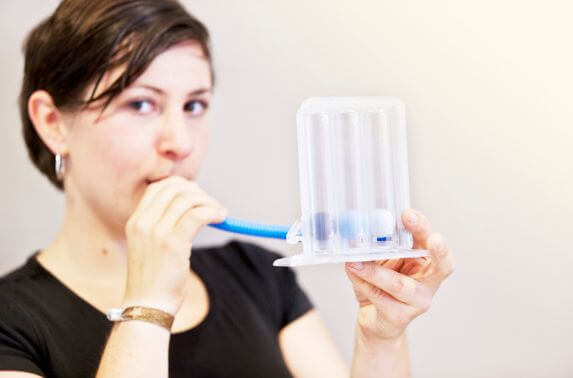
Spirometry (Lung Function Test) in Dubai
Spirometry, also known as a lung function test, is an essential diagnostic tool used to assess how well your lungs are functioning. This test measures the amount of air you can inhale and exhale, as well as the speed at which you can expel air from your lungs. It plays a vital role in diagnosing various respiratory issues such as asthma, chronic obstructive pulmonary disease (COPD), and breathing problems linked to allergies. In Dubai, finding a trusted provider for spirometry testing is crucial to receiving accurate diagnoses and effective treatment. Dr. Ahmed El-Rafei, a renowned allergy and asthma specialist in Dubai, offers advanced spirometry services tailored to your individual needs, ensuring the best care for your respiratory health.
Why Is Spirometry Important?
Spirometry is more than just a diagnostic test—it’s a window into your respiratory health. Here’s why it’s vital:
- Early Detection of Lung Disorders: Spirometry helps identify conditions like asthma, COPD, and other restrictive or obstructive lung diseases before symptoms become severe.
- Monitoring Existing Conditions: For individuals with known respiratory issues, regular spirometry tests ensure that treatment plans remain effective.
- Evaluating Symptoms: Symptoms like shortness of breath, wheezing, or persistent coughing can be linked to underlying lung problems. Spirometry provides clarity.
- Assessing Treatment Success: Doctors can measure the effectiveness of medications or therapies using spirometry results.
What to Expect During a Spirometry Test
Many patients feel anxious about undergoing a spirometry test, but the procedure is simple and non-invasive. Here’s what happens:
1. Preparation:
- Avoid large meals before the test to ensure comfort.
- Refrain from smoking or taking certain medications as instructed by your doctor.
2. During the Test:
- You’ll be asked to sit comfortably and use a mouthpiece connected to a spirometer.
- Following the technician’s instructions, you’ll inhale deeply and exhale forcefully into the device.
- The process might be repeated several times for accuracy.
3. After the Test:
Results are typically available immediately, allowing your doctor to discuss findings and next steps.
Who Should Get a Spirometry Test?
If you experience respiratory symptoms or have risk factors for lung disease, spirometry may be recommended. Common reasons for spirometry include:
- Persistent coughing or wheezing.
- Shortness of breath, especially during physical activity.
- A family history of asthma, allergies, or COPD.
- Smoking history or occupational exposure to lung irritants.
- Diagnosed respiratory conditions that require monitoring.
Dr. Ahmed El-Rafei provides personalized care to patients in Dubai, ensuring that spirometry is performed efficiently and that results are interpreted with precision.
Benefits of Spirometry for Allergy and Asthma Patients
Allergies and asthma are common respiratory conditions that can significantly impact quality of life. Spirometry (lung function test) in Dubai is particularly beneficial for:
- Asthma Management: By measuring lung capacity and airflow, spirometry helps diagnose asthma and monitor its severity. This enables doctors to adjust treatment as needed.
- Identifying Allergy-Triggered Breathing Issues: Allergens like pollen, dust, or mold can cause breathing difficulties. Spirometry determines the extent of the impact on lung function.
- Preventing Complications: Regular testing ensures early detection of potential complications, allowing for timely intervention.
Tips for a Successful Spirometry Test
To get the most accurate results from your spirometry test, follow these tips:
- Wear loose, comfortable clothing that doesn’t restrict your breathing.
- Avoid caffeine, as it can affect your lung function.
- Practice deep breathing exercises beforehand to familiarize yourself with the technique.
- Inform your doctor about any medications you’re taking.
Spirometry Results: What Do They Mean?
The results of a spirometry test are typically presented as two key measurements:
- Forced Vital Capacity (FVC): This measures the total amount of air you can exhale after taking a deep breath. A lower-than-normal FVC may indicate restrictive lung disease.
- Forced Expiratory Volume in 1 Second (FEV1): This measures how much air you can forcefully exhale in the first second of a breath. A reduced FEV1 suggests obstructive lung disease.
By comparing these values, your doctor can diagnose the type and severity of any lung condition.
Frequently Asked Questions About Spirometry
- Is Spirometry Painful?
No, spirometry is a non-invasive and painless test. You may feel a bit tired from exhaling forcefully, but the procedure is generally well-tolerated. - How Long Does the Test Take?
The entire test typically takes about 15-30 minutes. - Can Children Undergo Spirometry?
Yes, spirometry is safe for children, though it requires their cooperation to perform the breathing maneuvers correctly. - How Often Should I Get a Spirometry Test?
The frequency depends on your condition. For chronic issues like asthma, annual testing may be recommended. - Is Spirometry Covered by Insurance?
Many insurance plans in Dubai cover spirometry as part of diagnostic services. Check with your provider for details.
Conclusion
Spirometry (lung function test) in Dubai is a vital diagnostic tool for anyone experiencing breathing difficulties or managing conditions like asthma and COPD. At Dr. Ahmed El-Rafei’s clinic, you’ll receive expert care and accurate results, ensuring you take the right steps toward better respiratory health.
Book your spirometry test today and breathe easy with personalized care from one of Dubai’s top allergy and asthma specialists.

